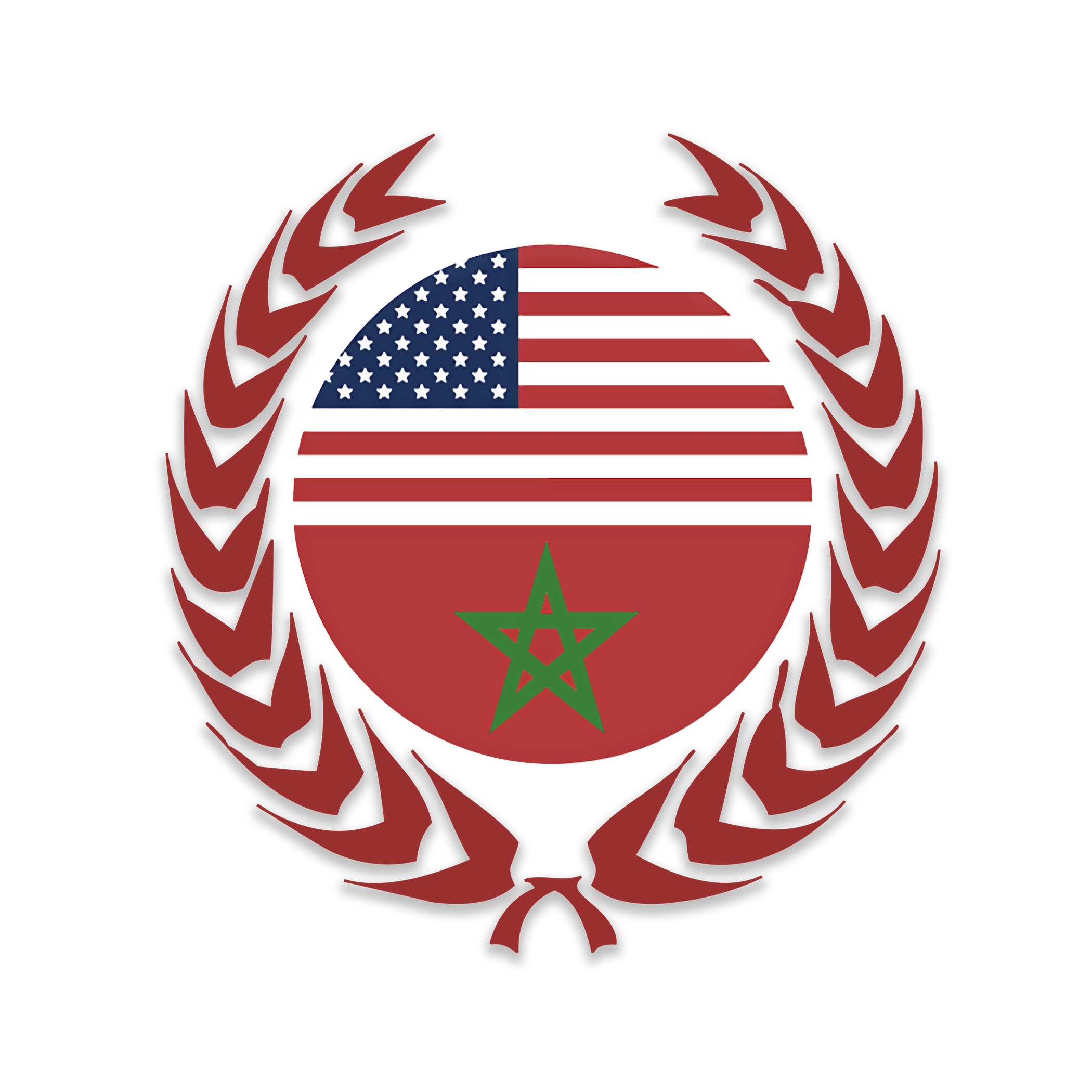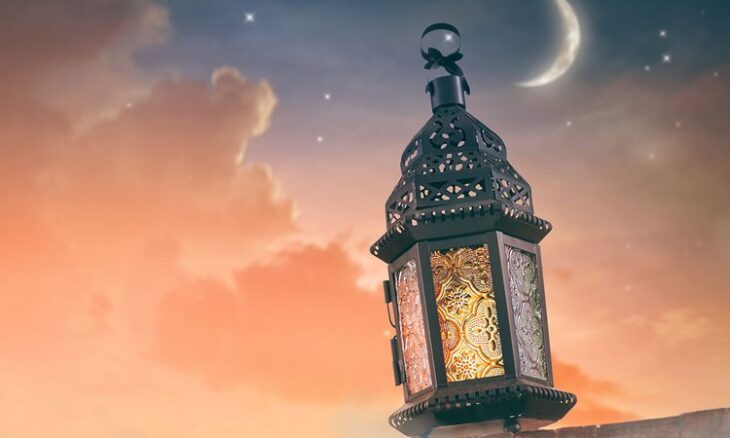All praise is due to ALLAH, the ONE, the UNIQUE and honor to his Prophets, Angels, Holy Books, and the Day of Judgment… We ask ALLAH to send peace and blessings upon the Prophets for their service to humanity and ALLAH. We give honors to our Messenger Prophet Noble Drew Ali and his forerunners the Honorable Marcus Garvey, and Prophet Mohammed (Peace be upon them). Honors to our temples, officers, the faithful members, and all to whom honors are due.
O fear Allah, therefore, all the days of thy life, and walk in the paths which He hath opened before thee. Let prudence admonish thee, let temperance restrain, let justice guide thy hand, benevolence warm thy heart and gratitude to Heaven inspire thee with devotion. These shall give thee happiness in thy present state, and bring thee to the mansions of eternal felicity in the paradise of Allah. — Moorish Holy Koran, Instructions From The Prophet – Religion
The Prophet Jesus (Peace be upon him) taught us that, “understanding is the rock on which man builds himself; it is the gnosis of the aught and the naught, of falsehood and truth.” Gnosis, by definition, is knowledge of hidden spiritual truths. The gnosis practiced by our ancient forefathers is essential to our salvation. So we humbly ask ALLAH to bless us with an appropriate understanding of fasting during the month of Ramadan, the Night of Power and recommended days like the Day of Ãshurã.
What is the month of Ramadan?
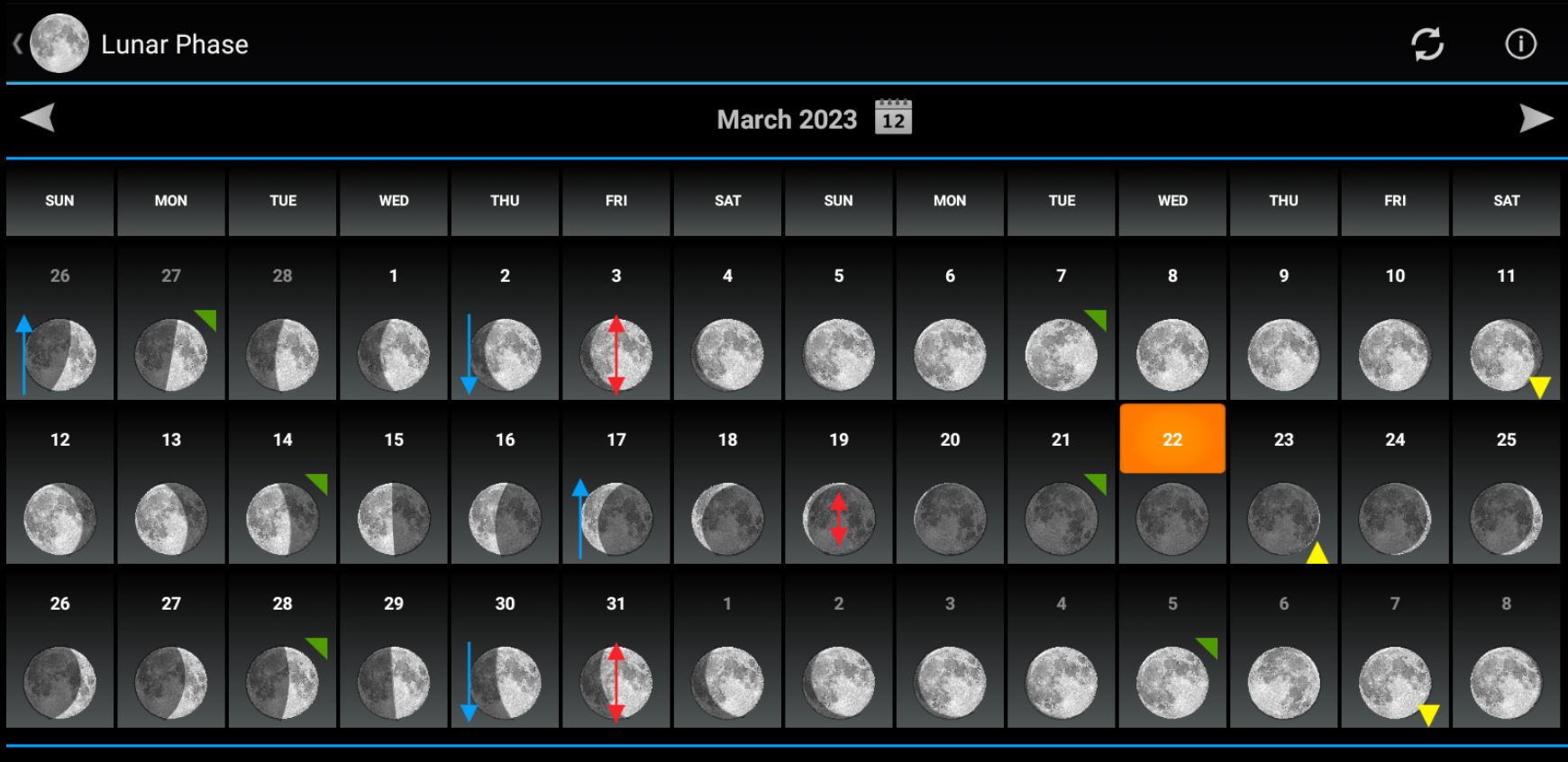
Ramadan is the ninth month of the Islamic calendar. It is also the month during which Muslims around the world fast from sunrise to sunset. We refrain from eating, smoking, drinking, and sexual contact during the fasting period. During the month we also strive to fast from arguing, fighting and all known vices. Fasting consists in preventing all of your thoughts, words, and deeds from anything that might entail heedlessness in relation to ALLAH. Towards the end of this month, a 3 day celebration called Eid-ul-Fitr brings Ramadan to a close.
An Islamic calendar day (commonly known as a lunar calendar day) starts just after sunset and ends at sunset the next day.
- A lunar calendar month can be either 29 or 30 days;
- The lunar calendar includes six months of 29 days and six months of 30 days.
- Each lunar calendar has 354 days and is 11 days shorter than a solar year, which is why Ramadan starts 11 days earlier each year when compared to the Gregorian calendar of 365 days.
- The months of the Islamic Calendar are: Muharram, Safar, Rabi’ u-l-Awwal, Rabi’u-l-Akhar, Jumâda-l-Ûlâ, Jumâda-s-Sâni, Rajab, Sha’bân, Ramadân, Shawwal, Dhu-l-Khi’da and Dhu-l-Hijja.
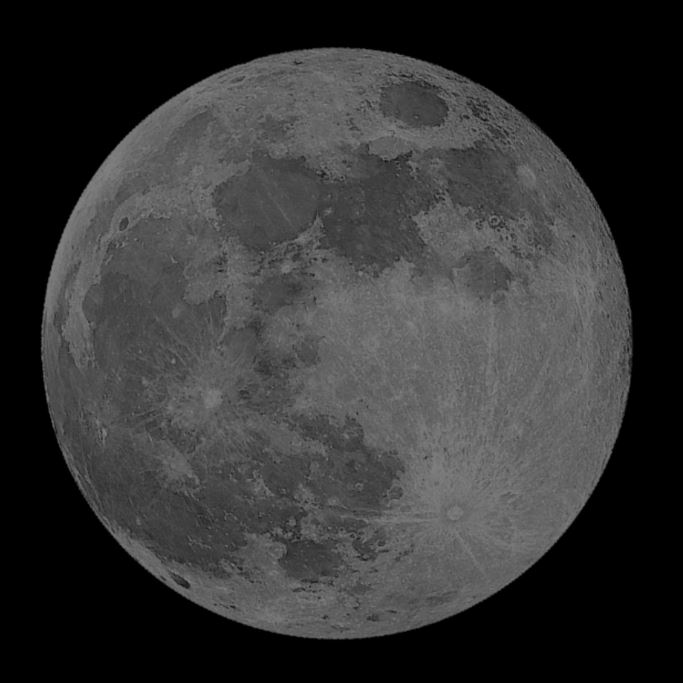 The lunar month of Ramadan begins at the time of the new moon (the time of conjunction); this is when the Earth, Moon, and Sun are all lined up. The term full moon is used when the moon is fully illuminated by the rays of the sun which is the opposite of the conjunction. The time of conjunction is when the moon has no illumination at all or is completely shaded or dark. It is referred to as the birth of the new moon because the next phase of the moon starts after this event. The moon remains completely dark or shaded for a short time but the new crescent of the moon cannot be visible even if it is in the horizon after sunset unless it is at least after 15 hours, provided that the sky is clear and visibility conditions are favorable.
The lunar month of Ramadan begins at the time of the new moon (the time of conjunction); this is when the Earth, Moon, and Sun are all lined up. The term full moon is used when the moon is fully illuminated by the rays of the sun which is the opposite of the conjunction. The time of conjunction is when the moon has no illumination at all or is completely shaded or dark. It is referred to as the birth of the new moon because the next phase of the moon starts after this event. The moon remains completely dark or shaded for a short time but the new crescent of the moon cannot be visible even if it is in the horizon after sunset unless it is at least after 15 hours, provided that the sky is clear and visibility conditions are favorable.
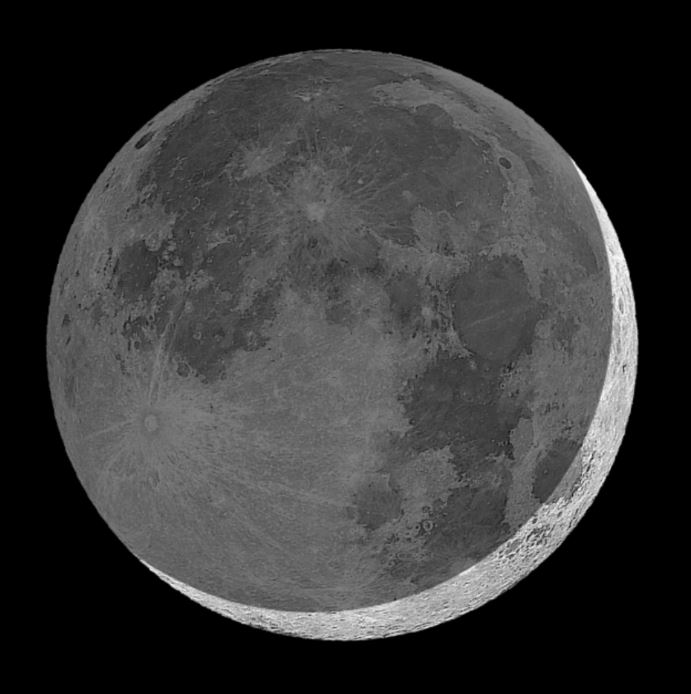 The beginning of Ramadan has traditionally been based on the detection of the crescent moon by the human eye without the use of optical aids. The beginning of a new month in the Islamic calendar starts from the sunset after the new crescent is sighted. During the Prophet Mohammed’s time when there was confusion about starting the month of Ramadan, the Prophet’s verdict or advice was to start fasting after the sighting of the Ramadan crescent and stop fasting after the sighting of the Shawwal crescent.
The beginning of Ramadan has traditionally been based on the detection of the crescent moon by the human eye without the use of optical aids. The beginning of a new month in the Islamic calendar starts from the sunset after the new crescent is sighted. During the Prophet Mohammed’s time when there was confusion about starting the month of Ramadan, the Prophet’s verdict or advice was to start fasting after the sighting of the Ramadan crescent and stop fasting after the sighting of the Shawwal crescent.
- This year (2023), Ramadan will begin the evening of Wednesday, March 22nd.
- Therefore, We set our intentions to fast this evening (Wednesday, March 22nd), and begin the first day of fasting the following morning (Thursday March 23rd, 2023).
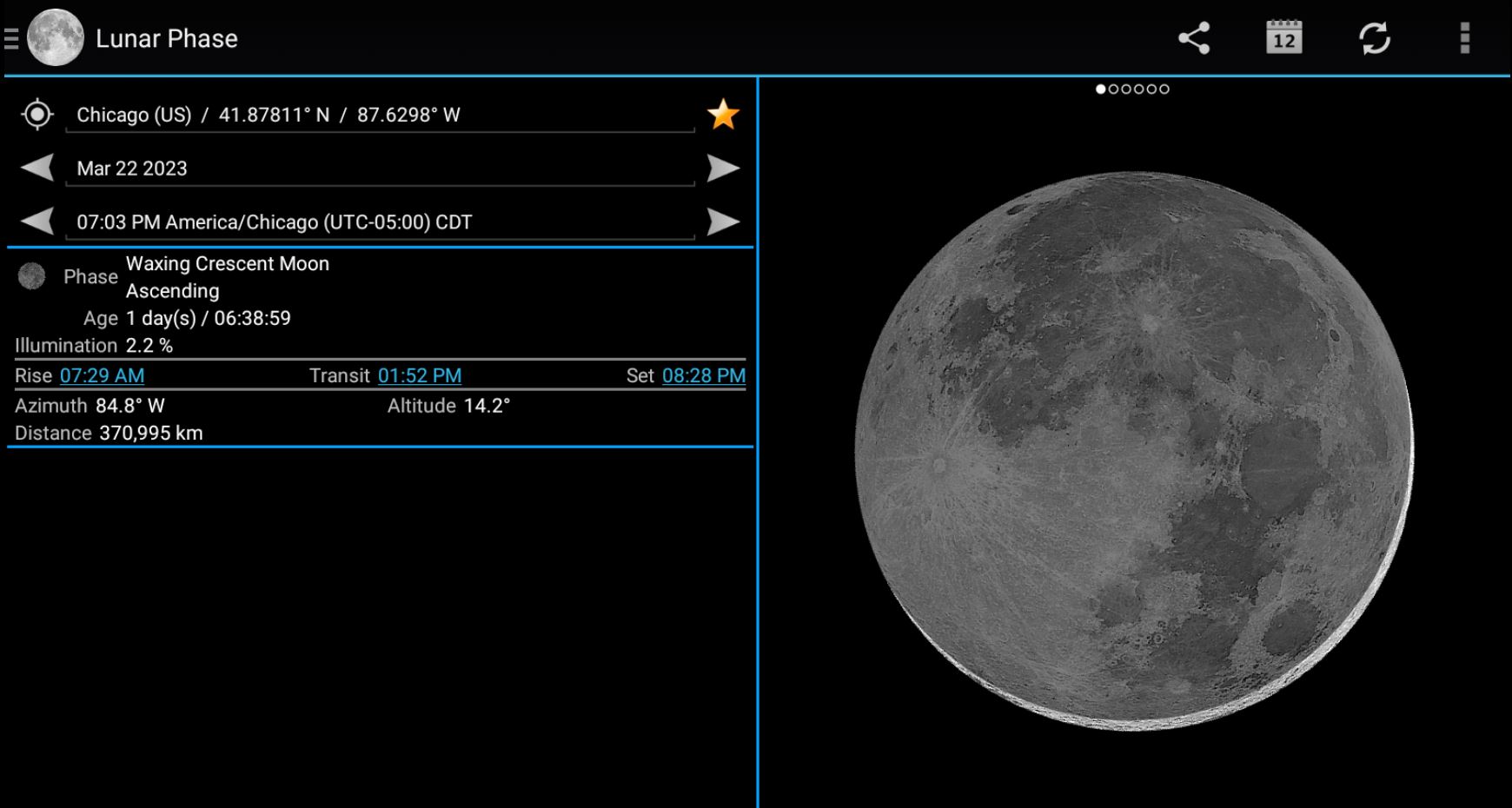
Why do we fast during Ramadan?
Fasting during the month of Ramadan is one of the five pillars of Islam and it signifies a holy time for controlling the lower self and connecting with ALLAH. The month of Ramadan is holiest period of the Islamic year. As noted above, there is even a science to calculating the first day of Ramadan.
“O you who have believed, decreed upon you is fasting as it was decreed upon those before you that you may become righteous.” — Quran Surah Al-Baqarah, 2:183
Fasting during the month of Ramadan commemorates the ninth lunar month in the year 610 CE, when revelations began coming to the Prophet Mohammed from ALLAH, through the angel Gabriel. These revelations were memorized by the Prophet Mohammed, written down, and later compiled to form the book that we call the Holy Quran of Mecca today.
Ramadhan is the (month) in which was sent down the Qur’an, as a guide to mankind, also clear (Signs) for guidance and judgment (Between right and wrong). So every one of you who witness the month (at home) should spend it in fasting, but if any one is ill, or on a journey, the prescribed period (Should be made up) by days later. Allah intends every facility for you; He does not want to put to difficulties. (He wants you) to complete the prescribed period, and to glorify Him in that He has guided you; and perchance ye shall be grateful. — Quran Surah Al-Baqarah, 2:185
Some people believe that the revelation of the Quran was revealed entirely on the night of power and then and disseminated to his followers over a 23 year period.
“Lo! We revealed it on a blessed night: Lo! We are ever warning – Whereon every wise command is made clear“ — Quran 4: 3
While others believe that on this night the Prophet Mohammed was opened to the ability to perceive revelation and only a few short verses were revealed to him that night. This is captured in the following verses from the Quran where he saw the Angel Gabriel and he commanded him to:
“Read: In the name of thy Lord Who createth. Createth man from a clot, Read: And thy Lord is the Most Bounteous, Who teacheth by the pen; Teacheth man that which he knew not.” — Quran 96: 1-5
We take the position that the Quran was both revealed entirely during the Night of Power and through individual revelations in Mecca and Medina to the Prophet Mohammed; the revelations were collected, memorized and disseminated to his followers during the lifetime of Prophet Mohammed.
Soon after his death, his closest companions and members of his family put it in book form. This Quran or Furqan (once compiled) consisted of 114 chapters called “suras”, and its verses are called “ayats”. The word “ayat” means “sign”; each ayat of the Quran is a sign or revelation from ALLAH. It instructs us in matters of law, morality, and spirituality; it is not only limited to these categories but contains something for everyone that is determined to read it sincerely.
How do we partake in the fast, and what is the point of it?
“The month of Ramadhan [is that] in which was revealed the Qur’an, a guidance for the people and clear proofs of guidance and criterion. So whoever sights [the new moon of] the month, let him fast it; and whoever is ill or on a journey – then an equal number of other days. Allah intends for you ease and does not intend for you hardship and [wants] for you to complete the period and to glorify Allah for that [to] which He has guided you; and perhaps you will be grateful.” — Quran, Surah Al-Baqarah, 2:185
Fasting is like spiritual push-ups. It teaches us restraint by voluntarily denying our selves things that are good and permitted, so that we strengthen our will to deny worldly desires.
“Allah is with those who restrain themselves.” — Quran, Surah An-Nahl, 16:128
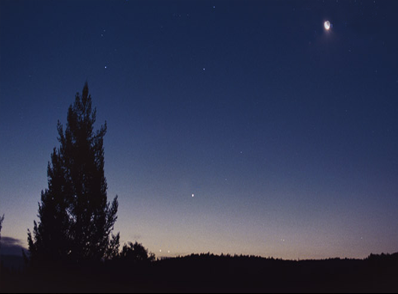
We must begin the fast (stop eating) by the specific time of morning that prayer begins, called Fajr. Fajr is the pre-dawn time of prayer and recitation specified by the Quran of Mecca.
Fajr (pre-dawn or daybreak) is the time before the sun can be seen on the horizon (dawn). It begins about 1hr 40mins before dawn. We can see when Fajr starts becuase the sky will go from being all dark, to having two (2) clear streaks on the morning horizon. One streak will be dark (from the night sky), and one streak will be light (from the sun about to rise). Fajr ends at dawn, when the sun peaks over the horizon.
So, when Fajr appears, you must stop eating. Coincidentally, this is also the time that your morning prayer is now open to begin. The morning prayer time is closed when the sun peaks on the horizon (dawn).
“…and eat and drink, until the white thread of dawn appear to you distinct from its black thread; then complete your fast Till the night appears; but do not associate with your wives while ye are in retreat in the mosques. Those are Limits (set by) Allah: Approach not nigh thereto. Thus doth Allah make clear His Signs to men: that they may learn self-restraint.” — Quran, Surah Al-Baqarah, 2:187
While Fasting, it is the perfect time to realign ourselves with Allah by striving to make at least three (3) of our prayers timely (at Pre-dawn, Noon, Sunset):
Observe the prayer (salat) at the declining of the sun [from noon], until the darkness of night; And recite the Quran at dawn… The recitation of dawn is witnessed…
During the month, it is prescribed to read the entire Quran of Mecca. This is done by reading sections of the Quran that amount to 1/30th of the Quran each day. These sections are called Juz’.
As Moorish American Moslems who were sent a Prophet that explained the message of Islam in our native tongue, we also read 2 pages of the Holy Koran of the Moorish Science Temple each day. Since there are just 60 pages in the Moorish Koran, this will mean we read it fully within 30 days of Ramadan as well.
For increased spiritual benefit, adding superogative prayers in the middle of the night (when we wake suddenly for no reason) are highly beneficial:
And some time of the night, awake for an extra [prayer] offering of your own, so that your Lord may raise you to a station of praise and glory (“Maqaman Mahmuda”)…
Say: “O my Lord! Let my entry be by the Gate of Truth, and likewise my exit by the Gate of Truth; and grant me from Thy Presence an authority to aid (me).”
And say: ‘The truth has come, and falsehood has passed away: falsehood is bound to pass away.’
— Quran, Surah Al-Isra’, 17:78-81
Let us also remember to expect and heed the signs of guidance which Allah returns to us during this highly spiritual period:
When My servants ask thee concerning Me:
I am near:
I answer the call of the caller when he calls to Me;
So let them also Listen to My call, and believe in Me:
That they may by guided.”
— Quran, Surah Al-Baqarah, 2:186
Some do’s and don’ts of our fasting period:
“Permitted to you, on the night of the fasts, is the approach to your wives. They are your garments and ye are their garments… so now associate with them, and seek what Allah Hath ordained for you…” — Quran, Surah Al-Baqarah, 2:187
Fasting consists not in only abstaining from eating and drinking, so do not delude yourselves because there are many people that do not derive any benefit from their fasting except hunger and thirst. From sunrise to sunset, we fast from eating, drinking, smoking, and sexual contact. During the month we strive to fast from arguing, fighting and all known vices. Fasting consists in preventing all of your limbs from anything that might entail heedlessness in relation to ALLAH.
“(Fasting) for a fixed number of days; but if any of you is ill, or on a journey, the prescribed number (Should be made up) from days later. For those who can do it (With hardship), is a ransom, the feeding of one that is indigent. But he that will give more, of his own free will,- it is better for him. But it is better for you that ye fast, if ye only knew.” — Quran, Surah Al-Baqarah, 2:184
The cultural aspect of fasting during the holy month of Ramadan combines both the individual and communal aspects of our religion. During the day we fast as individuals. This is our personal exercise in self-discipline and obedience to ALLAH. After sunset, we break our fast together as a community of believers and celebrate unified gratitude to our maker.
Those who are unable to fast for medical reasons, may make those days up later on. You may also receive the same spiritual benefit by feeding the poor for each day you are personally unable to fast.
Which day in the last 10 days of Ramadan is actually the Night of Power?
The night the Quran of Mecca was revealed is known as the “Night of Ascent” or “Night of Power” (Laylat Al Qadr). The sacred month this occurred is called the month of Ramadan. The anniversary of the Night of Power occurs during the last 10 nights of Ramadan; most of the faithful remain vigilant in prayer and remembrance during each of these 10 nights in an attempt of making superogative prayers on the Night of Power and obtaining the blessings of a thousand months (83.3 years) for one day of sincere worship. So neither the night nor the month in which the Quran was revealed to humanity should be changed.
We have indeed revealed this (Message) in the Night of Power (Laylat al-Qadr): And what will explain to thee what the night of power is? The Night of Power is better than a thousand months. Therein come down the angels and the Spirit by Allah’s permission, on every errand: Peace!…This until the rise of morn! — Quran, Surah Al-Qadr, 97:1-5
There is a difference of opinion about the date for the Night of Power (Laylat al-Qadr) but, in general, it is agreed that it is most likely to be in the last 10 nights of Ramadan, with the odd nights being more likely.
However, let us go back to 1915/1916 when the Shaykh Ahmad El-Bekki founder of the Mouride Brotherhood of Senegal, West Africa gave his disciples the scientific formula for calculating the Night of Power. He wrote the formula in a qasaid (poem) entitled The Most Distinguished Guest:
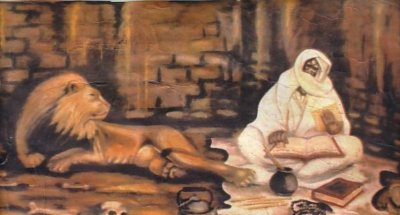
“IN THE NAME OF ALLAH, THE COMPASSIONATE, THE MERCIFUL
If the crescent moon is sighted and seen on a:
- Sunday evening, the Night of Power would be on the 27th night of that Ramadan.
- Monday evening, the Night of Power would be on the 19th night of that Ramadan.
- Tuesday evening, the Night of Power would be on the 25th night of that Ramadan.
- Wednesday evening, the Night of Power would be on the 17th night of that Ramadan.
- Thursday evening, the Night of Power would be on the 23rd night of that Ramadan.
- Friday evening, the Night of Power would be on the 29th night of that Ramadan.
- Saturday evening, the Night of Power would be on the 21st night of that Ramadan.”
He even reminded them that, no matter which evening one sees the crescent moon, the Night of Power will always fall on Friday night (i.e., the night of Thursday going into Friday). Then he informed us that the moon must be sighted and seen by at least a few credible adult Moslems.
According to Islamic law and the inner reality of the Shaykh, he was showing his disciples his spiritual station as Privileged Servant of the Prophet Mohammed by informing them about the month of Ramadan when they were arguing. He told them, “Let whoever saw what looked like a moon, know that they should wash their face and seek refuge in Allah against the accursed devil… Sha’ban has not waved goodbye to me, nor has Ramadan announced itself.“ This Shaykh wanted to ensure that his disciples knew how to calculate the night of power by referencing the start of Ramadan.
Are there other recommended days for fasting?
There are some believers, like the eminent Imam Mãlik, that were in the habit of fasting three days out of every month, not just during Ramadan.
Our Moorish ancestors selected special days which they specifically regarded as beneficial when fasting, these seven particular days are scattered throughout the Islamic year and are listed below:
- 3rd of Muharram
- 10th of Muharram (Day of Ãshurã)
- 27th of Rajab
- 15th of Sha’bân
- 25th of Dhu-l-Qi’da
- 8th of Dhu-l-Hijja
- 9th of Dhu-l-Hijja
The Prophet Mohammed mentioned that there are so many advantages in fasting that it is almost impossible to enumerate all of them, so he recommended that we devote ourselves to fasting during Ramadan and on these seven days.
I want to make special mention of the 10th of Muharram often called the Day of Ãshurã which is a day endowed with certain historical particularities. Our forefathers have reported that the Day of Ãshurã is the day when Adam was forgiven by ALLAH, Noah’s Ark drew alongside Mount Judi, the Red Sea cleft for Moses, the miraculous birth of Jesus took place, the Pharaoh was drowned, the Prophet Jonah was withdrawn from the entrails of the fish, the Prophet Joseph was taken out of the well which his brothers had thrown him down, the fire was not permitted to burn the Prophet Abraham, the Prophet Enoch (Idris) and the Prophet Isa (Jesus) ascended to their LORD, the granting of complete remission to Prophet David from all that he had committed in the past and the ritual covering of the Sacred House (the Kaaba) is periodically performed.
Some of our forefathers used to fast the entire month of Rajab, the entire month of Muharram, the first nine days of Dhu-l-Hijja and the whole month of Sha’bân. They particularly were unanimous in granting preference to certain practices on these days such as: fasting, praying, consolidating kinship bonds, taking a ritual bath, giving charity, nails cutting (hands and feet), applying antimony around eyelids, visiting the ill, visiting the righteous, treating children kindly, reciting Sura Al-Ikhlãs one thousand times and making of a copious meal for family members.
Our spiritual development and advancement upon the path of ALLAH as a Moorish community will be undertaken by participating in the inner reality of the Prophets utilizing the law, history and the gnosis of our ancient forefathers. We, the Moorish Americans are returning to Islam, which was founded by our forefathers for our earthly and divine salvation.
The Prophet Mohammed (PBUH) said, “The scholars are the inheritors of the Prophets.” So be clear in your understanding, the Prophets did not leave wealth to be inherited from them, they left us knowledge…
One Light, One Life… ONE LOVE
Written by: Sheik Shiloh Shaeed El, “The Lamp”
Revisited by: Moorish Guide Staff
